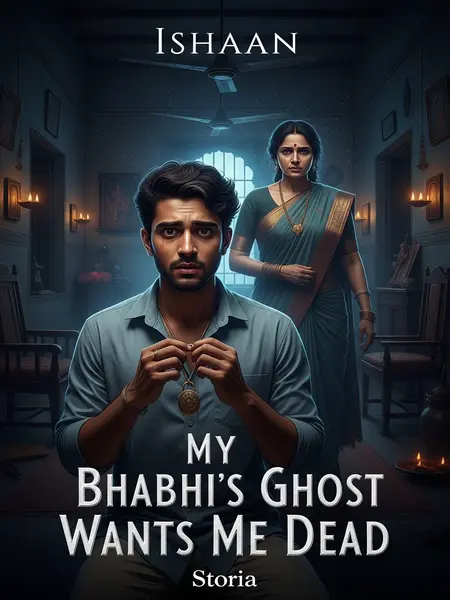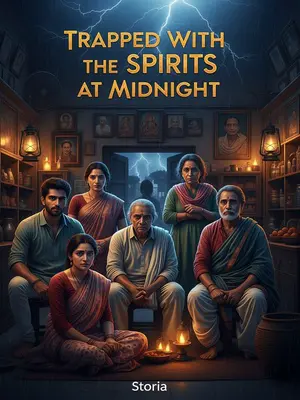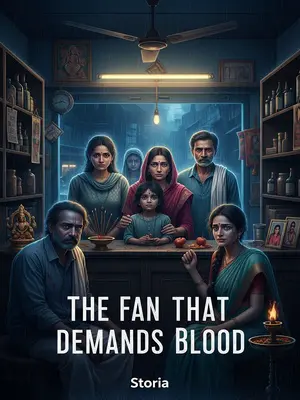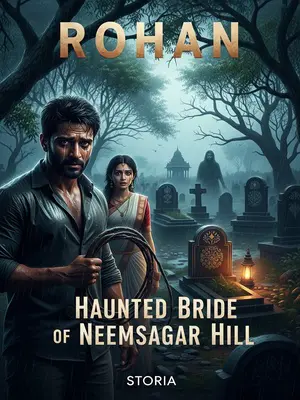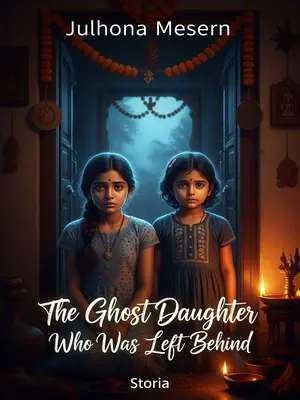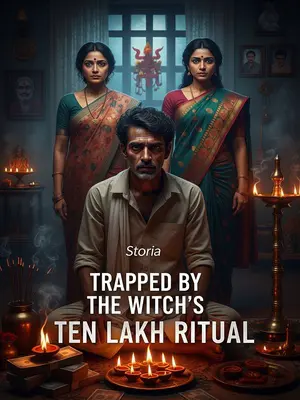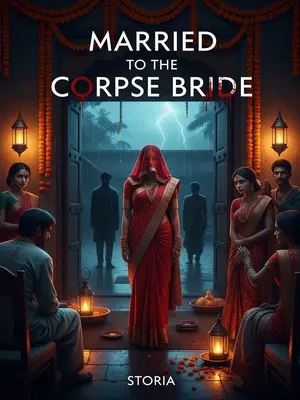Chapter 3: Shadows in the House
When we reached home, my mother’s face lit up with relief as she hurried to greet us. Pandit Mishra just snorted coldly and ignored her. My mother awkwardly stepped aside.
For a second, Mummy looked like she might burst into tears again, clutching her pallu in her fist. The tension was thick, like the air before a monsoon downpour. Even the neighbours, who’d been peering through their windows, quietly pulled back their curtains.
I was puzzled—Pandit Mishra had always been close to our family and got along well with my mother. What was going on today?
My mind raced with possibilities. Did something happen between them? Did Pandit ji know something we didn’t? The question sat on my tongue, but I kept it to myself.
But there was no time to think about it. Pandit Mishra told me to set the bucket of water in front of my bhabhi’s body, then to place the agarbatti sticks in the water, and to bow to her corpse.
My hands shook as I arranged the items. The agarbattis hissed faintly as their tips touched the water, sending up tiny curls of smoke. The smoke coiled into strange, twisting shapes, and for a second, even the ceiling fan above seemed to slow, as if the air itself was waiting. Mummy stood at the doorway, lips moving in silent prayer, while I steeled myself for what was to come.
I touched my forehead to the floor three times, each bow solid and heavy. Pandit Mishra began to chant beside me:
Every thud of my forehead echoed the silent ache in my chest. The marble was cold, but I pressed down harder each time, as if pain could purify guilt. Pandit ji’s voice rose and fell, the Sanskrit words weaving through the heavy air, mingling with the smell of incense and grief.
"Neha, I know you left with pain in your heart, but the dead cannot return. Let’s let go of this sorrow. In the future, the family will offer flowers at your photo all year round. Is that enough?"
His words were gentle but stern, like a parent scolding a wayward child. My bhabhi’s name, Neha, rang in my ears. The promise of flowers year-round—such a simple thing, yet in our world, it meant she would always be remembered.
As soon as Pandit Mishra finished speaking, the agarbatti sticks lying in the bucket suddenly stood upright.
For a moment, it felt as if the earth itself had shifted beneath my knees. The agarbattis rose as if pulled by invisible hands. Even the crows outside went silent, as if watching with us.
I was so startled that I nearly jumped.
My breath caught in my throat. My heart hammered against my ribs. I looked at Pandit ji, searching his face for any sign that this was normal, but his expression only darkened.
Pandit Mishra’s face turned ashen. He pressed his lips together, eyes wide with shock. I could see the fine tremor in his hands. This was something even he had not expected.
